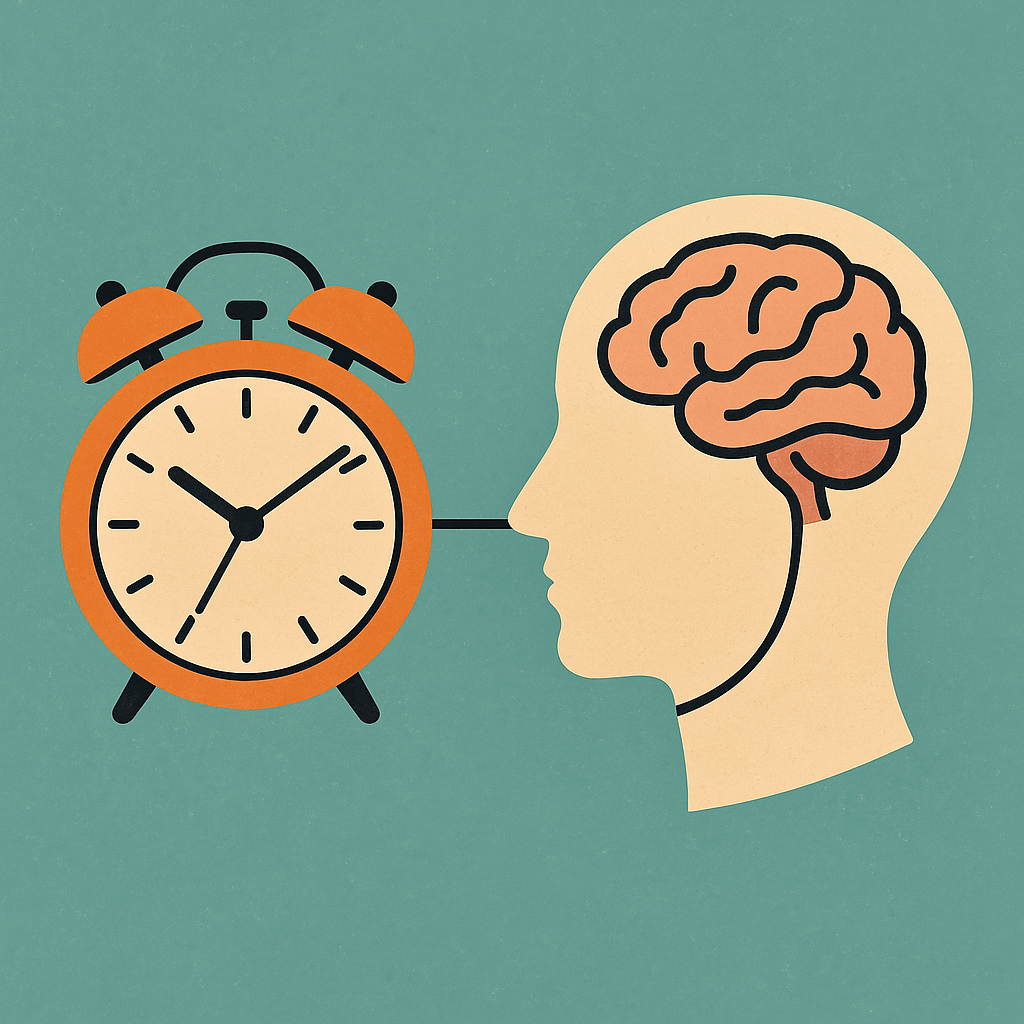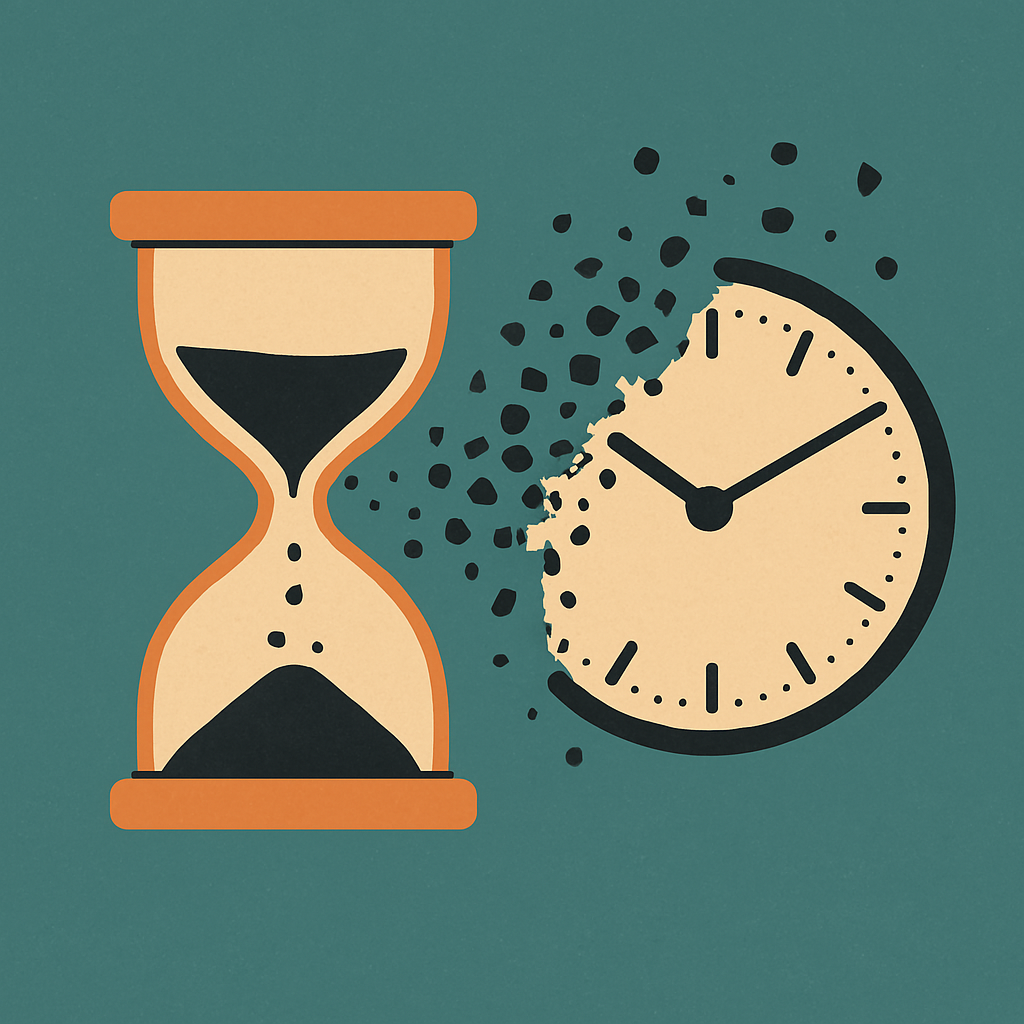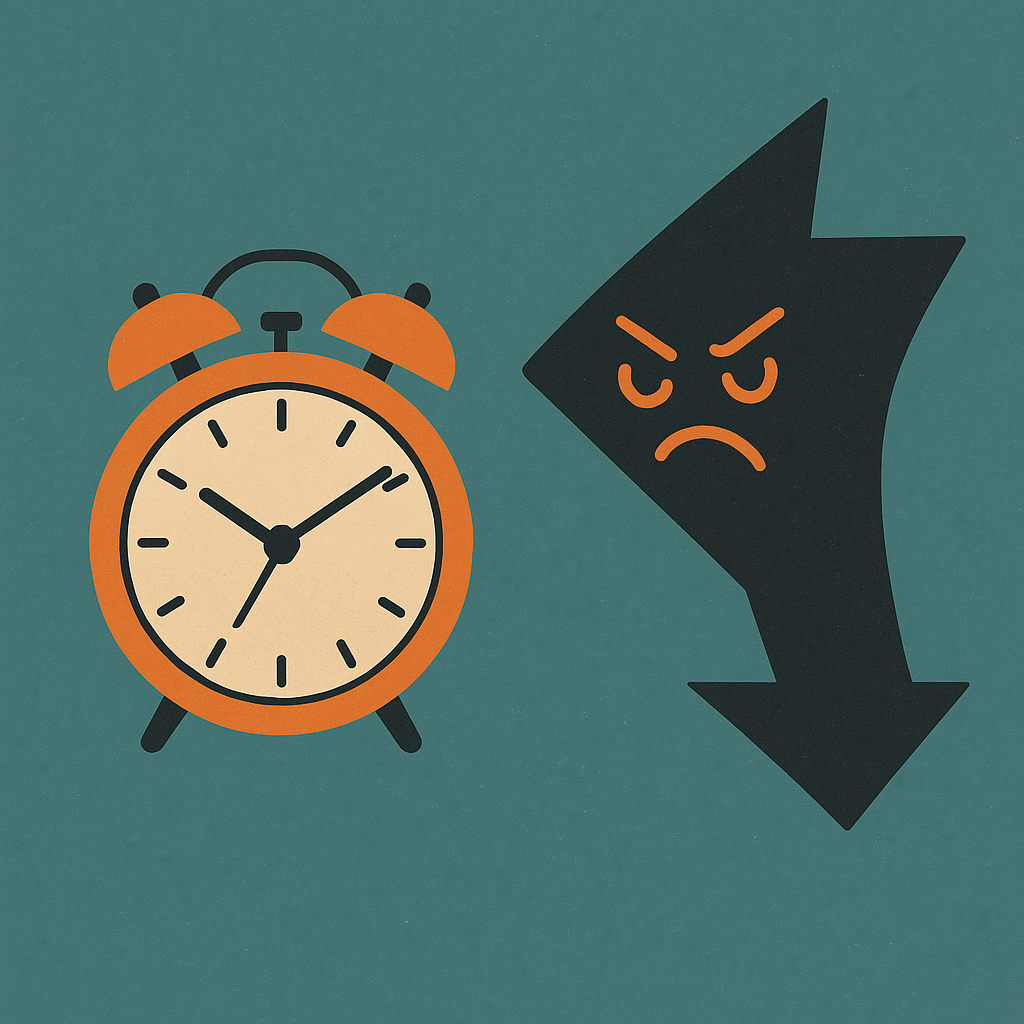
In today’s fast-paced world of the daily grind, we often prioritize money above all else. However, we must recognize that time is the most important resource we have. In fact, it’s an invaluable resource we possess. Once a minute passes, it is lost forever, with no way to regain it.
Time is free, but it’s priceless. You can’t own it, but you can use it. You can’t keep it, but you can spend it. Once you’ve lost it, you can never get it back.
– Harvey Mackay
Without understanding the true value of time, we may fail to set priorities that reflect what truly matters to us.
Time is a very important aspect to anyone’s existence, specifically the way we manage it. By recognizing the value of time and restructuring our priorities, we can strive to make the most of this invaluable resource and lead more fulfilling and productive lives.
8 Reasons Why Time Is Important and Valuable
1. The way you manage your time affects your mental health

We think, mistakenly, that success is the result of the amount of time we put in at work, instead of the quality of time we put in.
– Arianna Huffington
Does the thought of time management make you feel stressed for the fear of failing to accomplish a particular project or task on time? Do you stay up all night worrying about what tomorrow will bring? Do you feel like you’ve accomplished very little at the end of every day?
If you answered yes to any of these questions, the anxiety caused by the significance of time management may feel overwhelming. Sometimes, it feels like time owns us instead of us being able to manage time in an effective way. The problem is that too much stress can be detrimental to our health.
According to findings from the Journal of Applied Psychology, managing interruptions and taking breaks can significantly reduce mental fatigue and the risk of burnout.
To quell these concerns, you can start by introducing proper time management skills into your daily routine. Start small by breaking projects into smaller chunks and setting priorities according to deadlines.
In return, you’ll get more done within the same time, and become more productive. Soon, your stress levels start to drop, and you can start enjoying life.
In order to stay tuned and involved in tasks throughout the workdays, you can use a time and productivity monitoring tool like Traqq. This could be a game-changer for those who tend to fritter away time on procrastination and social media browsing.
In order to stay tuned and involved in tasks throughout the workdays, you can use a time and productivity monitoring tool like Traqq. This could be a game-changer for those who tend to waste time on procrastination and social media browsing.

2. Time wasted is time lost

Your time is limited, so don’t waste it living someone else’s life.
– Steve Jobs
You must have heard the saying “Time waits for no one” dozens of times, and it’s true. No one has the power to stop the clock or slow it down. Time will keep marching on whether we like it or not.
As you may know, when you lose time by engaging in unproductive tasks, you can never get that time back. That’s why you should try to seize every opportunity and make the most of your time to get things done.
Recognizing the progress of completed tasks can enhance motivation and self-esteem, making effective time management even more crucial.
Things can’t just happen if you wait around. That’s why time is important in our life – you must seize every moment and use it wisely. Actively come to the realization that the time you’re wasting could be better spent elsewhere and do what matters most now.
Better yet, the less time you waste, the more you avoid friction and problems both at home and at work.
3. Procrastination is your enemy

Benjamin Franklin once said, “Don’t put off until tomorrow what you can do today.” His words still ring true today, since it’s a waste of time is a waste of opportunity.
Know the true value of time; snatch, seize, and enjoy every moment of it. No idleness; no laziness; no procrastination; never put off till tomorrow what you can do today.
– Lord Chesterfield
Our world is filled with so many distractions that eat up a lot of our time. Smartphones have become incredibly advanced and the apps on them are designed to get as much of our attention as possible. You have social media, YouTube, news, and anything else you might want to distract yourself with right in the palm of your hand.
There are distractions all around us, and you have to become aware of them to find ways to reduce them. Since time is one of the greatest and most limited resource we have, you only have a few hours each day to get things done.
To succeed in life and get the most out of your life, you have to identify time-wasting behavior and take the necessary steps to take back control by controlling your time.
Assess the amount of time you have in your day and carefully divide it to make sure set an agenda of what you need to get done. On the other side of the time-grabbing spectrum, there are also apps can help you minimize distractions when working. Social media can wait, your time can’t.
4. You never know how much time you or a loved one has left

Life is unpredictable. Someone who is here today can be gone the next hour or tomorrow. Time is important in life because you never know when a moment with a loved one might be your last. This illustrates the importance of putting our time into what really matters. Effective time management can provide you with additional free time to spend with your loved ones, making every moment count.
There are moments in life where you ask yourself, “Should I work overtime or go home?” Earning money is no doubt important, but try to spend as much time as possible with the people dearest to you.
5. Time is a teacher

Time is the greatest teacher of them all. People learn from mistakes and take time to get things right. Success takes time, so understanding the importance of time in our life helps us appreciate patience and persistence. Learning often comes through trial and error. We fail, persevere, and refine our strategy until we finally achieve success.
It takes time and practice to get good at doing something. Experience helps to shape your life, from your character and morals to habits and lifestyle. The little things you learn in life teach you to improve situations and become a better version of yourself.
How you spend time will affect you and your future. If you spend time doing valuable things, you become more productive. If you waste a lot of your time doing useless things, you will get useless results, and you may later come to regret it.
6. Time heals

Whatever pain you may be going through right now will ease over time, and you’ll be left with a memory. While the memory may hurt every time it crosses your mind, the pain will gradually decrease over time. Time allows even the deepest of wounds to heal, and you will grow as a person as a result.
Recognizing the value of time means information how breaks can absolutely improve our productiveness. Understanding the value of time in life means recognizing when to take breaks to improve productivity. Instead of seeing breaks as distractions, consider them as vital components in crafting a balanced, efficient routine.
If you feel tired of constant pressure of work, take a minute to take a breath and just play around online!
Illustration Generator is an online tool that helps you create consistent illustrations in five unique art styles. But it can be used not only for creative or marketing purposes but also for fun. For example, you can turn your selfies into stunning illustrations, create images you won’t find anywhere else (what about a cat wearing glasses and reading a newspaper?), or generate unique wallpapers for you and your friends. Experimenting with drafts is free, so you can generate as many images as you want.

7. Time can improve your decision-making skills
There’s a lot of pressure that comes with the feeling you don’t have enough time to finish your projects or tasks. Try to find a system that works for you.
Whether it’s list-making or an app, effective time management and organizational skills give you the ability to become better at making decisions. At the same time, allocating specific durations for each task can help you stay focused.
When you have your time planned out, you will no longer have to worry about not having enough time to achieve your goals. Instead, you’ll be composed and more in control.
Instead of rushing to make a decision, take time to carefully consider the outcome of each option. In turn, this will reduce the chances of making bad choices.
8. Time can improve self-discipline

Let’s face it. Self-discipline is not an easy skill to acquire. It takes practice and the willingness to eliminate bad habits like watching TV well into the night and putting off important tasks until later. But that doesn’t mean it’s not achievable. Mastering time management strengthens your self-discipline and helps stave off procrastination.
Focusing on one task at a time can significantly enhance your productivity and self-discipline. Naturally, the better you become at managing your time, the more self-disciplined you become. Soon, you’ll get to a point where you don’t let anything interfere with your valuable time.
Self-discipline, the ability to control one’s actions, emotions, and impulses to stay focused on long-term goals, is a valuable asset in itself. It enables you to do things you never would have. As a result, it positively impacts areas in your life where you were previously unable to attain your goals because you could bring yourself to get started.
9. Pay attention to who you spend your time with

The old saying ‘Show me who your friends are and I’ll tell you who you are’ still holds to this day. Friends influence your life in more than one way.
Time is valuable, so you should spend it with people who uplift you and contribute to your growth. Instead of dwelling on the past, focus on spending your time with people who uplift you and contribute to your growth. Friends can make you lose or improve your self-control. But on the other hand, friends can also increase your levels of stress by putting a lot of pressure on you.
If you want your circle to be a good influence on you, don’t waste your time with people who make poor life choices. You don’t want to be dragged into their bad decisions and failures.
Instead, focus on spending time with friends who have a positive influence in your life, friends who inspire you to become better and increase your chances of reaching your goals.
The value of time in our life cannot be overstated. The time you have is limited and once lost, it’s gone forever. Keep in mind that you can’t turn the clock back. Be sure to take full advantage of the time you have as much as possible and always remember your priorities.
Avoid putting things off until the next hour or the next day. Time is most important in your life right now, so use it wisely.
The Importance of Time Management
Effective time management is crucial for success in various aspects of life, including personal and professional endeavors. It enables individuals to set priorities, manage their time efficiently, and make the most of their available time. Proper time management skills can lead to increased productivity, reduced stress, and a better work-life balance.
In today’s fast-paced world, proper time management is more important than ever. By mastering time management, you can ensure that you are focusing on what truly matters, both at work and in your personal life. This not only helps you get closer to your goals but also contributes to a greater life satisfaction and well-being.
Understanding Time Management as a Skill
Time management is a skill that can be developed and improved over time. It involves understanding how to effectively allocate time, set proper priorities, and avoid throwing time away on non-essential activities. By developing good time management skills, individuals can achieve their goals, reduce stress, and improve their overall well-being.
Think of time management as a muscle that gets stronger with practice. The more you work on it, the better you become at managing your time. This means setting clear boundaries, focusing on specific activities, and eliminating unnecessary distractions. As a result, you can spend more time on what truly matters, leading to a more fulfilling and productive life.
Prioritizing Tasks and Managing Time
The ability to set priorities and effectively managing your time are essential skills for achieving success. By prioritizing tasks, individuals can focus on the most important activities and allocate their time accordingly. Effective time management involves breaking tasks up into smaller, manageable chunks, setting specific time blocks for each task, and avoiding focus-destroying distractions.
When you break tasks up into routine tasks and urgent ones, you ensure that your most critical responsibilities are addressed first. This approach not only helps in completing tasks efficiently but also reduces the chances of missed deadlines and last-minute stress. By managing your time effectively, you can achieve a better work-life balance and enjoy a greater sense of control over your daily routine.
Strategies for Effective Task Prioritization
There are several strategies for effective task prioritization, including:
Eisenhower Matrix
This involves categorizing tasks into four quadrants based on their urgency and importance. Tasks that are both urgent and important are tackled first, while those that are neither can be delegated or eliminated.
ABC Analysis
This involves labeling tasks as A (high priority), B (medium priority), or C (low priority) based on their level of importance and deadlines. This method helps in focusing on tasks that have the most significant impact.
Prioritization based on impact and effort
This involves prioritizing tasks based on their potential impact and the effort required to complete them. Tasks with high impact and low effort are prioritized, ensuring that you achieve maximum results with minimal effort.
By implementing these strategies, you can stay organized, manage your time more efficiently, and make steady progress towards your goals.
The Consequences of Poor Time Management
Poor time management can have negative consequences on an individual’s personal and professional life. Some of the consequences of poor time management include:
- Failure to meet deadlines: Failing to manage time effectively can lead to missed deadlines, which can result in lost opportunities and damaged reputation.
- Increased stress: Poor time management can lead to increased stress levels, which can negatively impact an individual’s physical and mental health.
- Decreased productivity: Poor time management can lead to decreased productivity, which can result in reduced job satisfaction and decreased earning potential.
In the modern world, where every moment counts, poor time management can significantly hinder your ability to achieve your goals and maintain a healthy work-life balance.
Exploring the Negative Outcomes of Ineffective Time Use
Ineffective time use can have negative outcomes on an individual’s personal and professional life. Some of the negative outcomes of ineffective time use include:
- Wasting time on non-essential activities: Spending too much time on non-essential activities, such as watching TV or browsing social media, can lead to wasted time and reduced productivity.
- Procrastination: Putting off tasks until the last minute can lead to increased stress levels and decreased productivity. Procrastination often results in rushed work and missed deadlines.
- Burnout: Failing to manage time effectively can lead to burnout, which can result in physical and mental exhaustion. Burnout not only affects your work performance but also your overall well-being.
By recognizing the negative consequences of poor time management, you can take proactive steps to improve your time management skills, reduce stress, and enhance your overall quality of life. The time you have is limited and once lost, it’s gone forever. Keep in mind that you can’t turn the clock back. Be sure to take full advantage of the time you have as much as possible and always remember your priorities.
